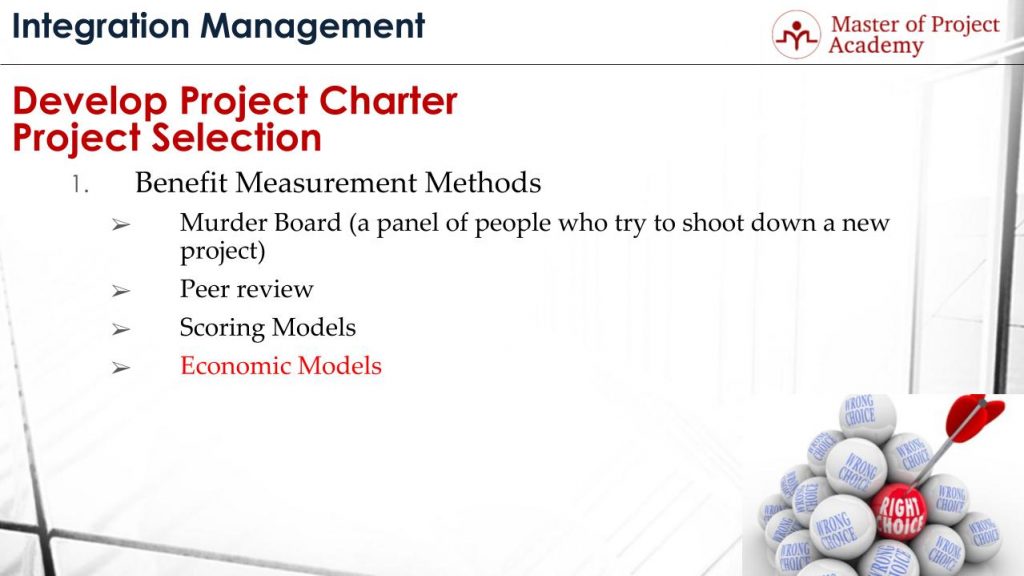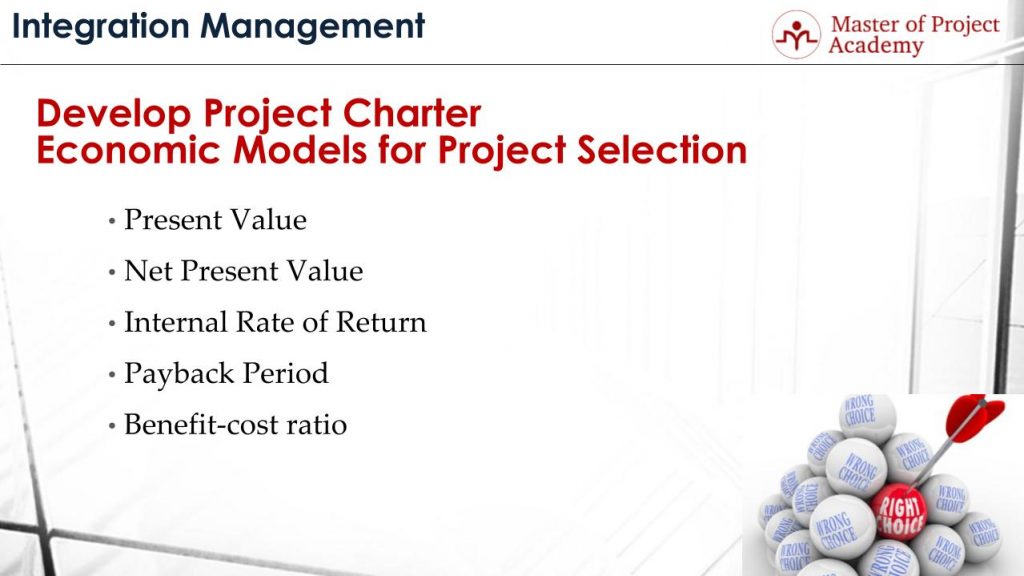There can be several possible projects to initiate in an organization. But are they the right ones? However, it is not possible to execute every project in an organization. Why there must be a project selection in the organizations? Because as seen in the PMP certification training lectures, the reason is mainly about the project constraints which are the budget and time. Naturally executing every project will cost a lot. On the other hand, even if the budget constraint is overcome, it will be impossible to complete several projects due to the causes such as market competition.
So as a Project Manager, what should you consider when you are doing project selection? Which are the most common project selection methods? In this article we are going to overview the different project selection methods and when is the best occasion for using each project selection method. More detailed information about project selection can be found in the PMP training.
Attend our 100% Online & Self-Paced One-Hour Free PMP Training.
The Objectives for Project Selection
As stated above, not every project can be executed in organizations. That’s why the project selection methods exist. That’s the reason why the organizations are evaluating different possible projects before project initiation and deciding which projects to initiate respectively. The role of the Project Managers is to know why their project was selected and how it fits into the organization’s strategic plan. Because, during Project Planning Process, this is crucial to plan project activities to meet the project objective once the project is completed.

What are the Common Approaches to Project Selection?
There are two common approaches for project selection. These are:
Benefit Measurement Methods which is Comparative Approach: Comparative approach evaluates several projects based on their benefits, profits, revenue etc. And the optimum project is authorized respectively.
Constrained Optimization Methods which is Mathematical Approach: On the other hand, this project selection method, the mathematical approach. It takes many inputs about a project and these are modeled mathematically usually by the help of software programs. And these programs outline possible outputs of the project mathematically.

Now let’s see which approach has which different project selection methods:
Benefit Measurement Methods

Benefit Measurement Methods have four types of project selection models. These are:
Murder Board
It is a panel of people who try to shoot down a new project. Participants in the panel act as the devil’s advocate and try to claim negative aspects that will come with the implementation of the project. Based on the results of the panel, if a project can defend these negative aspects, it is selected for initiation.
Peer review
This method is used to evaluate projects based on the perspective of similar people in an organization.
Scoring Models
This model scores candidate projects for each predetermined category. Projects with higher scores are evaluated for initiation.
Economic Models
Economic models are important because this is the most common approach used by many companies for project selection. There are different economic models for project selection:
- Present Value: This gives us the today’s value of a money that will be paid or received in future.
- Net Present Value: This gives us the today’s value of the sum of all transactions (inbound and outbound) that will happen in future.
- Internal Rate of Return: This gives us how much percent of the investment will turn back as revenue in future.
- Payback Period: This gives a duration that the project will cover the money invested with its revenues.
- Benefit-cost ratio: This ratio gives us whether the benefits of the project are higher than the costs.

Constrained Optimization Methods
Constrained Optimization Methods have four models and these are:
- Linear Programming
- Integer Programming
- Dynamic Programming
- Multi-objective Programming



2 thoughts on “Project Selection Methods: How to Choose the Right Project?”
Comments are closed.